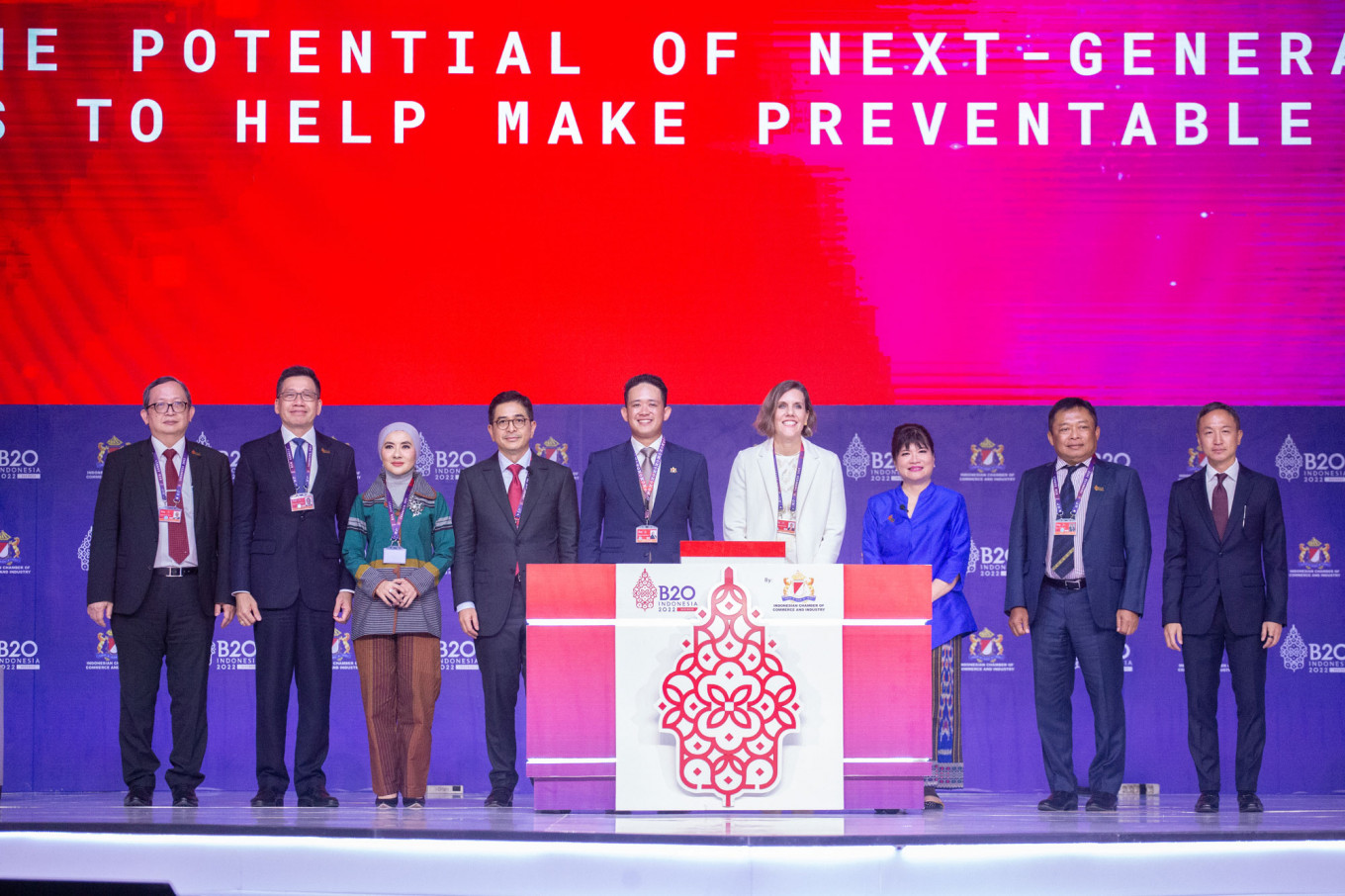Popular Reads
Top Results
Can't find what you're looking for?
View all search resultsPopular Reads
Top Results
Can't find what you're looking for?
View all search resultsB20 draws up new curriculum of vocational training for better education
Change text size
Gift Premium Articles
to Anyone
T
he Future of Work & Education Taskforce (FOWE TF) is playing a pivotal role in the B20 as the team that will decide the future of the workforce and education. The maximization of future job opportunities cannot be separated from the education system.
Therefore, the taskforce has prepared three policy recommendations to close the education gap in member countries and alleviate unemployment; supporting post-pandemic recovery and growth, upgrading education and lifelong learning and ensuring workforce inclusion.
Over the past years, the educational gap between countries and social backgrounds have been magnified by rapid technology innovations and automation. Chair of the FOWE TF, Hamdhani D. Salim, stated that the pandemic provided lessons for all of us, to reassess the relevance of the world of education today. An education system that is aimed toward the future needs of industry should encourage lifelong learning.
The pandemic caused the normalization of distance learning. While technology is instrumental in ensuring that the education sector continues during restrictions, equitable use of technology is still a global problem. Unprepared infrastructure, limited learning infrastructure based on digital technology and literacy issues in the education sector were the policy priorities brought to the attention of the taskforce.
Giving a speech regarding the B20-G20 Dialogue to students in August, chair of B20, Shinta Kamdani, revealed more obstacles for education and future job opportunities. Firstly, a World Economic Forum report estimates that by 2025 85 million jobs may be displaced by machines, but 97 million new roles may emerge due to a new dynamic between people and technology.
“The second problem is about the gap in science, technology, engineering and mathematics [STEM] literacy knowledge between developed and developing countries. In fact, this is the key in facing a future that is currently driven by science and technology, especially digitalization. If we don't find a solution soon, a large part of the world's population will lose the opportunity to participate in the global job market,” explained Shinta.
Moreover, the third obstacle is gender discrimination. Data reveal that more than 16 million girls do not have access to education, while women have shown tremendous potential talent in the workforce, which has contributed to the global economic recovery. To tackle this specific problem, Shinta introduced One Global Women Empowerment (OGWE), an initiative that focuses on digital literacy and women's leadership skills, as well as creating a safe and fair work environment.
In Indonesia Presidential Regulation (Perpres) No. 68/2022 highlights the need for revitalization for vocational education and vocational training. According to Iwan Syahril, director general of teachers and education personnel at the Education Ministry, the work landscape had transformed long before the pandemic. He is currently encouraging students to do internships in industry so that they have experience, skills and knowledge about the world of work, which largely relies on collaboration between educational institutions and industry.
"Organizationally, the Indonesian Chamber of Commerce and Industry is involved to be able to make improvements in vocational education, including aligning vocational education and training so that the workforce has the competencies needed by the business world and in the end can reduce unemployment," said Arsjad Rasjid, chairman of the Indonesian Chamber of Commerce and Industry (KADIN).
At another FOTW TF side event in June, president director of Komatsu Indonesia Pratjojo Dewo Sridadi also agreed that training and vocational education through internships, especially industrial apprenticeship programs, can smooth the transition from the world of training and education to the world of work.
Responding to the needs of industry, he said that link and match was the key to the success of vocational education through synchronizing curriculum and teaching materials on campus according to industry needs, practical practice and hands-on learning.










